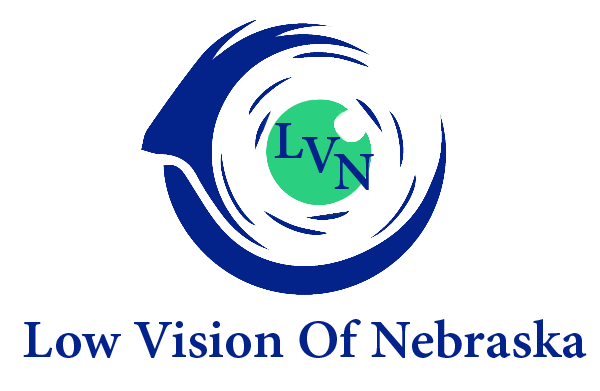
Reading a book, cooking dinner, or recognizing a neighbor’s face — these are everyday moments that most of us take for granted until our vision starts to change. For people living with macular degeneration, those changes can feel like losing access to the world around them.
At Low Vision Of Nebraska in McCook, our eye care professionals support patients facing this diagnosis with practical, realistic tools designed to help you do what matters most.
What Is Macular Degeneration?
Macular degeneration affects the macula — the part of your eye responsible for sharp central vision. It’s most common in adults over 60, but some types of macular degeneration are inherited and can begin early in life. There are two primary types:
- Dry Macular Degeneration: The more common of the two, caused by thinning of the macula.
- Wet Macular Degeneration: Less common but more severe, caused by abnormal blood vessels leaking under the retina.
Both types can cause blurry or distorted central vision, making everyday activities like reading or recognizing faces difficult.
What Happens After a Macular Degeneration Diagnosis?
Many patients are told by their medical doctor that there’s nothing more that can be done. But vision loss doesn’t mean you have to stop doing the things you love. That’s where a low vision optometrist at Low Vision Of Nebraska comes in. We focus on what you can do — not what you can’t.
We help patients remain active and independent by matching them with low-vision glasses and devices designed to maximize their remaining vision.
Low Vision Glasses: Custom Solutions for Daily Life
Here are some of the most effective types of low vision glasses available at Low Vision Of Nebraska:
Bioptic Telescope Glasses
Low vision bioptics are miniature telescopes that sit above your normal line of sight, helping you see details in the distance — great for activities like driving or attending sports events.
E-Scoop Glasses
Designed specifically for macular degeneration, E-scoop glasses include multiple features:
- Slight magnification
- A yellow tint to reduce glare
- Anti-reflective coating
- A shifted image focuses on a healthier part of your retina
They’re ideal for outdoor use and offer improved contrast in varying lighting conditions.
Prismatic Eyeglasses
Useful for reading and close-up work, these lenses magnify and converge simultaneously, making tasks like cooking, using a tablet, or working on a craft project much easier.
Full-Diameter Telescopes
If you enjoy theater, concerts, or watching your grandchildren perform, full-diameter telescopes bring far-away objects closer — all while seated comfortably in your chair.
More Tools for Life with Low Vision
Low vision solutions extend beyond glasses. Depending on your needs, other options may include digital tools and home modifications that support your daily routine:
- Handheld and desktop video magnifiers: Low vision magnifiers use cameras and screens to magnify text and objects. They’re great for reading, writing, and seeing fine details up close.
- Software for screen magnification and contrast: Computer and mobile screen readers can increase font sizes, enhance contrast, or even read text aloud — all of which make digital devices easier to navigate.
- Closed-circuit television (CCTV): CCTV systems display magnified images on a monitor. Some models can zoom in on text or images and adjust the contrast, brightness, and color filters to improve visibility.
- Lighting adjustments: Simple changes, such as brighter bulbs, task lamps, and motion-sensor nightlights, can reduce eye strain and improve safety at home.
- Wearable technology: Emerging devices, including virtual reality headsets and audio-enhanced glasses, offer new ways to enhance or supplement limited vision for complex tasks.
Ready for a More Independent Future in McCook?
Low Vision Of Nebraska in McCook takes a different approach to macular degeneration. While many providers focus only on diagnosis, we focus on helping you move forward. Our job is to help you see what’s possible — and to connect you with tools and training that allow you to live the life you want.
If you’re ready to take the next step toward more independence, book your low vision consultation with our eye doctors. We’ll walk you through your options and help you make a plan that’s grounded, realistic, and focused on results that matter.
Age-Related Macular Degeneration FAQs
Can I still drive with macular degeneration?
In some cases, yes. Bioptic telescope glasses allow many people with low vision to drive legally. Whether you qualify depends on your vision level and your state’s driving laws.
Does insurance cover low vision aids?
Most low vision devices are not covered by insurance. However, many patients find the cost worthwhile for the independence and function they gain.
What’s the difference between dry and wet macular degeneration?
Dry macular degeneration happens gradually and is caused by thinning in the macula. Wet macular degeneration is more aggressive and involves bleeding or leaking blood vessels under the retina.
